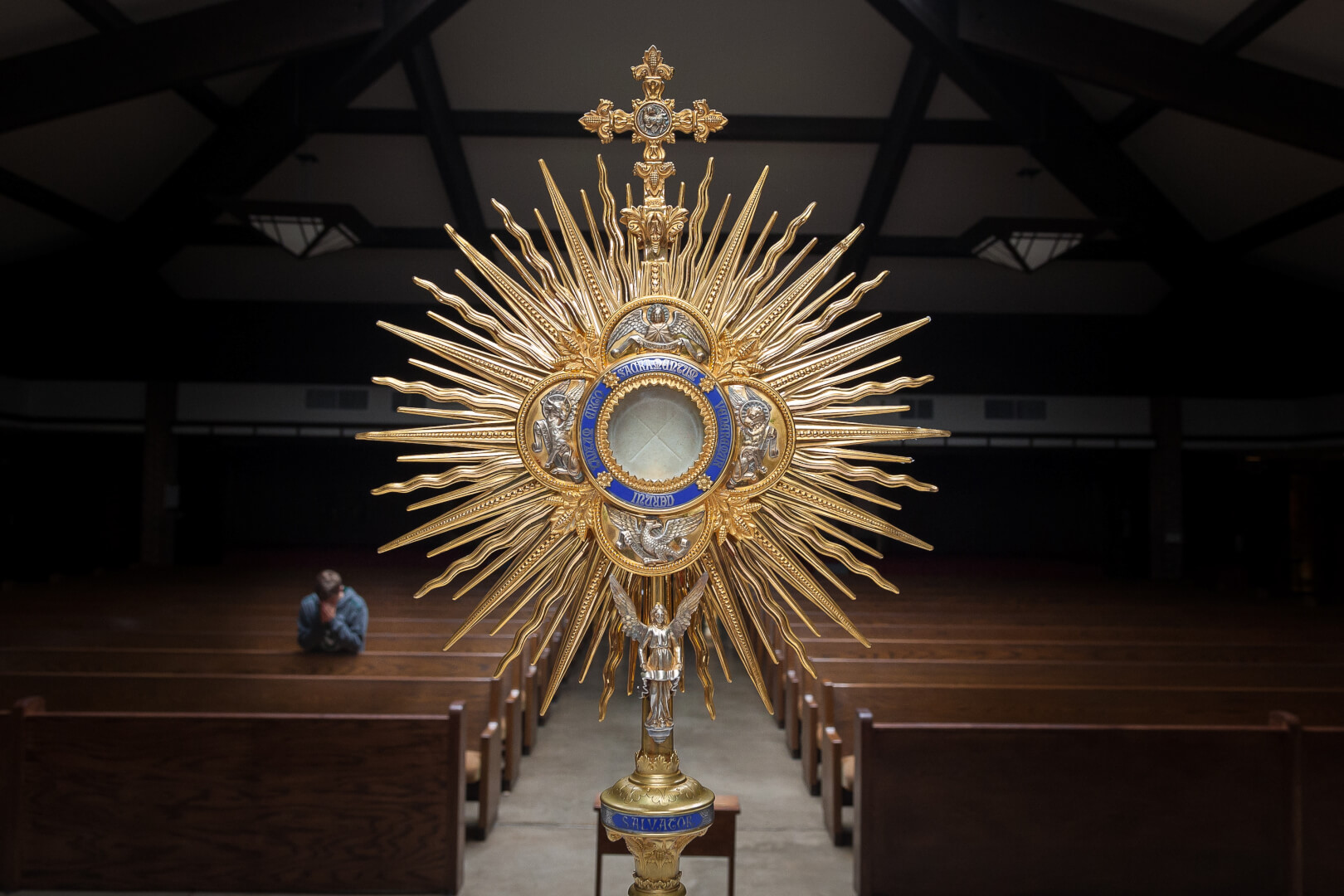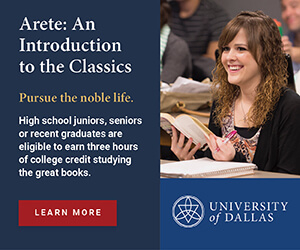Today we celebrate the Solemnity of the Most Holy Body and Blood of Christ, often called by its Latin name, Corpus Christi. The Eucharist is the source and summit of our faith, and today we take the time to ponder the mystery and the great gift that is available to us in the Body and Blood of Christ.
Monsignor James Patrick Shea, president of the University of Mary, stopped by Morning Air® this week to discuss this feast of Corpus Christi, and what the festivities surrounding this day symbolize for us.
Many parishes throughout the world celebrate the feast of Corpus Christi with a Eucharistic procession through their town, or even just around their church. Msgr. Shea reminisced about the Corpus Christi processions he experienced growing up, and the impression they left on him.
“I think when I was a little kid growing up in Hazelton, North Dakota and how important the Blessed Sacrament was to us as Catholics, in terms of our identity, in terms of what we believe,” he said. “This central belief that Jesus is really and truly present in the Most Blessed Sacrament – body, blood, soul, and divinity – and how much reverence we brought to the Blessed Sacrament. What an impression that made on me as a kid.”
Msgr. Shea explained that the Corpus Christi processions are not only meant to show reverence for the Blessed Sacrament, but are also a reminder to the faithful of their call to bring the Lord out of the church, into the streets, and into the whole world.
“It’s a reminder of the tremendous witness, that we’re not meant to cower in our churches, to keep our faith to ourselves,” he said. “We’re meant to believe, and to believe vibrantly, and then to share that faith with others. The Corpus Christi procession is a fantastic way, and a really venerable way dating back hundreds of years, by which Catholics are able to take their faith from the sanctuary of the church out onto the street.”
One of the reasons that Corpus Christi processions are so impactful is that they are distinctly Catholic. They are a reminder to the faithful (and an introduction to those who are not Catholic) of who God truly is.
Msgr. Shea pointed out, “It witnesses to everybody about the kind of God we believe in. God knows that it’s not enough simply to speak to us. Of course, we want His word, we hang on His every word as we read the Scriptures, as we ponder them, as we consider the revelation. But it’s not simply His word that He gives us. He gives us His very self. That’s what He wants. He wants us to know that His gift to us is full and complete. He holds back nothing of Himself in giving His Body and Blood for us every time we receive the Eucharist.”
It is this central belief in a God who gives Himself to us in the Eucharist that inspires awe and reverence not only today, but throughout the ages. The history and heritage of the Catholic Church is based on the romance of a God who gives Himself entirely to us, and invites us to give ourselves entirely to Him.
“This belief in transubstantiation, that the bread and the wine change and become the Body and Blood of Jesus, if that’s true it changes everything,” Msgr. Shea said. “About worship, about life, about God’s presence. It’s a really important mystery. And for Catholics to hold that mystery firmly, and to believe in it, and to let it sink into our bones, and change the way we think about ourselves, the way we think about God, the way we think about the world. That’s really important.”
Listen to the full conversation with Msgr. James P. Shea below:
Morning Air can be heard weekdays from 6:00 – 9:00 a.m. Eastern/3:00 – 6:00 a.m. Pacific on Relevant Radio® and the Relevant Radio App.


